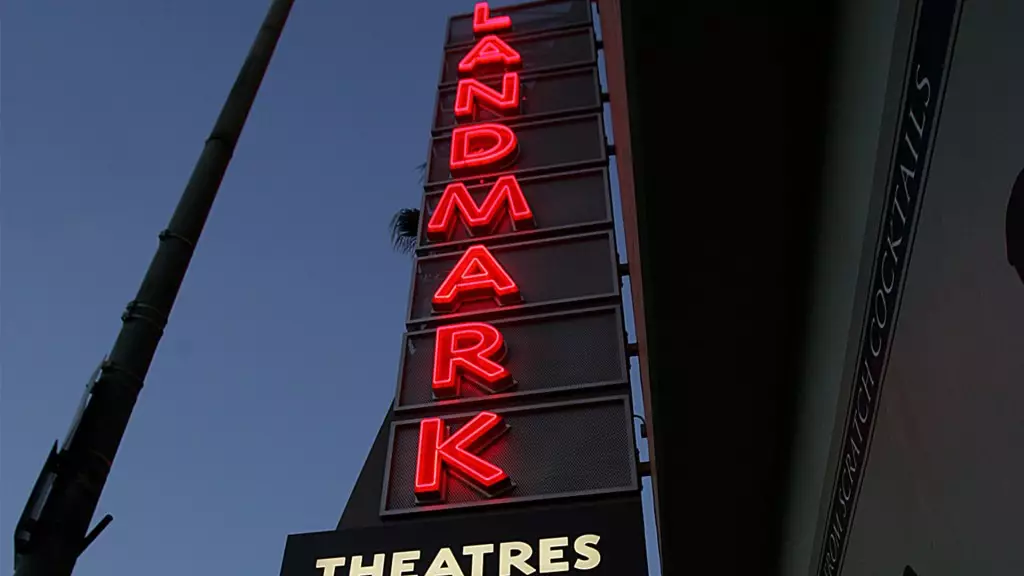The recent decline in value for Landmark Theatres highlights a troubling saga of financial distress exacerbated by a convergence of factors, including the aftereffects of the COVID-19 pandemic, high-interest rates, and prolonged industry strikes. The legal battles surrounding Landmark’s owner, Charles Cohen, reveal the complexities manufacturers and operators in the entertainment sector face, not just in managing their businesses, but also in weathering external shocks that disrupt their operations.
Landmark Theatres’ worth has diminished drastically, with estimates suggesting a drop in the hundreds of millions of dollars. This information surfaced during a deposition involving Cohen, indicating that the properties associated with Landmark are facing severe financial challenges. In a judgment delivered by the New York State Supreme Court, it was determined that Cohen had defaulted on a loan, resulting in a court order to auction off Landmark-related properties to repay the debt. Such a move underscores the persistent risks that accompany investments in the entertainment sector, especially during uncertain economic times.
The judge’s ruling extends beyond mere asset liquidation; it imposes a significant personal liability on Cohen himself. He is now accountable for a staggering $187 million loan guarantee, a situation rendered especially precarious as it unfolds against the backdrop of an impending auction scheduled for November 8. While Cohen is reportedly optimistic about reaching a settlement, the uncertainty regarding the auction looms large, creating a palpable tension about the future of Landmark Theatres.
Documents filed by Fortress Credit Corp. paint a grim picture of Landmark’s financial state. Fortress has aggressively sought to establish that the properties to be auctioned are in a deficit, implying a likelihood that the funds raised will fall short of the amounts owed to them. Fortress intends to secure its interests by seeking judicial measures to prevent Cohen from transferring his personal assets, reflecting a broader concern within the financial realm about the integrity and availability of collateral during tumultuous times.
This intricacy is compounded by accusations from Fortress that Cohen has engaged in asset-shielding maneuvers. Notably, he has reportedly transferred over $70 million worth of personal assets to structures that might obscure them from Fortress claims. Such actions raise ethical questions about asset protection versus responsibility to creditors, further complicating matters of trust and transparency in business conduct.
Cohen noted in his deposition that Landmark had faced considerable losses, attributing these to external factors like heightened interest rates and industry strikes that disrupted production and dissuaded moviegoers. Strikes by actors and writers made it nearly impossible to sustain new content, leading to reduced audiences in theaters.
Moreover, his acknowledgment that the collateral value had significantly decreased underscores a key concern within the cinema sector: the fragility of demand and changing consumer behaviors. The theater industry has shifted after the pandemic, with audiences adopting new viewing habits, sometimes preferring home releases over theatrical showings. The once-dominant model of cinemas struggles to find footing amidst changing tides influenced by technology, consumer sentiment, and competitive outlets like streaming services.
Future Prospects: Cautiously Optimistic Yet Uncertain
The future of Landmark Theatres remains steeped in uncertainty as the impending auction looms. While there is cautious optimism from Cohen regarding the possibility of reaching a settlement, the harsh realities faced by many cinema operators suggest a turbulent transition ahead. The challenge will not only be to emerge from looming bankruptcy but also to adapt to the evolving landscape of film exhibition and audience engagement.
Once a prominent chain known for showcasing independent and international films, Landmark has had to diversify its offerings in recent years, attempting to mix its arthouse fare with mainstream releases to attract broader audiences. The closure of its flagship Westside LA location is emblematic of systemic struggles facing even established chains as they vie for relevance in a post-pandemic cinematic landscape.
The tale of Landmark Theatres serves as a microcosm of the broader challenges inherent in the film industry today. Balancing debt obligations, adapting to market dynamics, and maintaining an unwavering commitment to cinema has never been more challenging. What remains to be seen is whether Landmark can navigate these turbulent waters and reestablish itself within an industry in constant flux.

